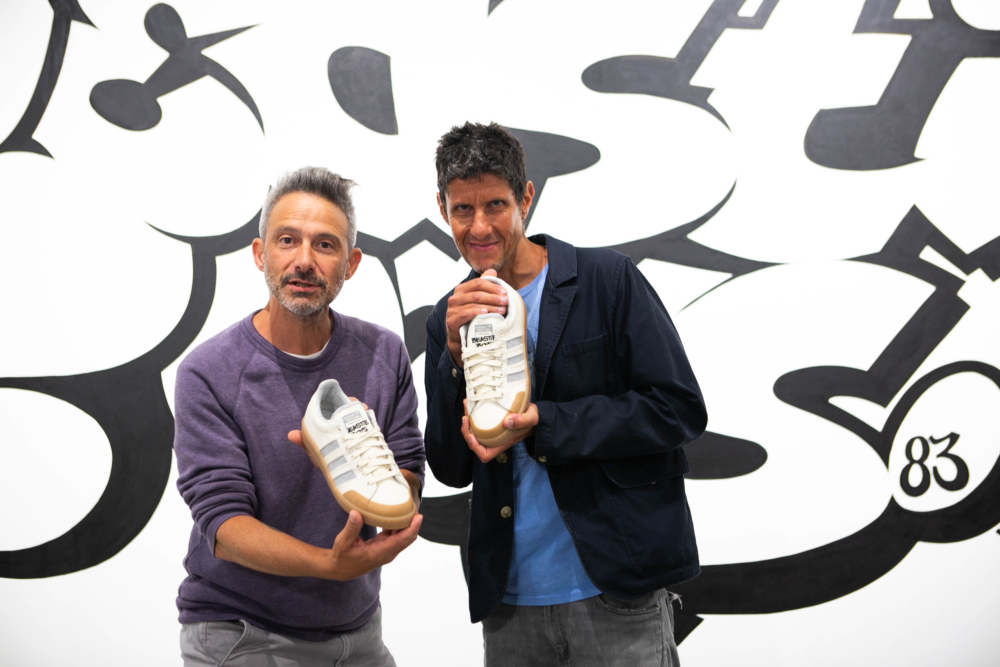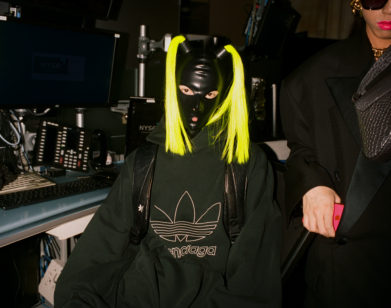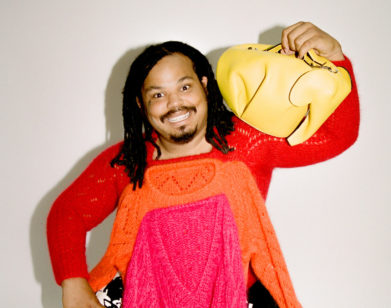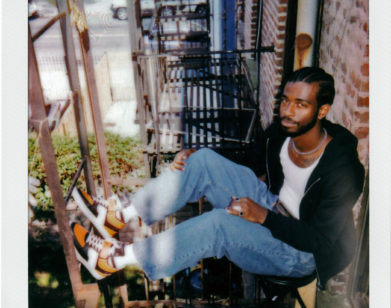Beastie Boys Ad-Rock and Mike D Look Back On Their Once Misunderstood Classic Paul’s Boutique

Ad-Rock and Mike D of Beastie Boys; image courtesy of Angela Owens.
In 1986, the Beastie Boys were on top of the world. Their debut album, Licensed to Ill, had just been released to widespread acclaim, rocketing them to the forefront of rap. Shortly after, the trio of New Yorkers—Michael “Mike D” Diamond, Adam “MCA” Yauch, and Adam “Ad-Rock” Horovitz—re-located to Los Angeles and recorded their sophomore album Paul’s Boutique, a masterful ode to sampling culture and their Brooklyn origins, full of inside jokes, and lyrical flaunts. “We were really excited about this record,” says Diamond. “So we thought, ‘Of course it’s going to connect with people because that’s what happened with our last one.’ But then it comes out and absolutely does not.”
Due to a mix of poor promotion—Capitol Records was more concerned with the new Donny Osmond record at the time—and an unexpected deviation from the sound that made them famous, Paul’s Boutique failed to resonate. However, in the thirty years since, the album has gone on to cult status, and is recognized as a pivotal moment in hip-hop’s development. Last month, Horovitz and Diamond, the group’s two surviving members (Yauch died of cancer in 2012) commemorated the 30thanniversary of Paul’s Boutique with a vegan-friendly adidas Skateboarding sneaker collaboration and an exhibit at Beyond the Streets, open throughout July and August. We sat down with them (and, for a second, LL Cool J) to revisit the now-classic album.
———
AD-ROCK: Someone just said, “You know what you should do? Google yourself.” Have you thought about that?
MIKE D: Mat, when’s the last time you googled yourself?
MAT FERRARO: Oh, it’s been a while.
MIKE D: I’m gonna put myself in the “never” category.
AD-ROCK: After a bath or a shower, maybe a nap.
MIKE D: When is the best time to Google yourself?
AD-ROCK: That’s what I’m getting at! Every single morning.
MIKE D: Or is it just every moment, constantly? If we googled ourselves more often would that affect our Google standing?
AD-ROCK: Like, “Damn, people google Mike D a lot.” All right, let’s move on.
FERRARO: Given the 30th anniversary of Paul’s Boutique, it would be great to hear—
AD-ROCK: Just hear a couple verses?
FERRARO: A little bit about the creation of the album and the context behind some specific moments on it.
LL COOL J: [stops by the table] Is there anything in particular you guys want to make sure we hit on in the talk?
AD-ROCK: Erotic stuff. Get real sexy.
LL COOL J: Some erotic shit? Absolutely. Let’s talk about some freak shit. You know them videos and shit … [laughs].
FERRARO: What’s the story behind Johnny Ryall, the character mentioned on the album? Was he actually a rockabilly star?
AD-ROCK: That’s what he said. He was a homeless gentleman that spent a lot of time on the stoop of the apartment that Mike and our friend The Captain lived in together. At the time, Russell Simmons lived in an apartment around the corner from Mike. And, you know, Mike’s a caring person. Johnny seemed a little cold, so Mike brought him down a jacket, a Def Jam jacket. Then he might have also brought him down another Def Jam jacket and a Def Jam shirt. Russell Simmons, living around the corner, was like, “Mike, you gotta stop giving a bum my shirt! It’s bad for business!”
FERRARO: Another mystery on the album is the track “Ask for Janice,” which includes a phone number at the end. Who’s Janice?
AD-ROCK: It’s the commercial for Paul’s Boutique. I taped a reggae show in the ’80s, The Gil Bailey Show, and there was a commercial for Paul’s Boutique, the one that’s on the record. And we used to make mixtapes all the time, and on one of the mixtapes I put that commercial on there. We thought it was funny so we were going to put it on the record and then we ended up calling the record Paul’s Boutique. Later in time, I don’t know how much later, Adam Yauch got that phone number and transferred it to his parents’ basement in Brooklyn. So he had an answering machine that anybody who called Paul’s Boutique would hear. The outgoing message was something like, “Hey, man. It’s Paul. Can’t come to the store right now, leave a message.” For years.
FERRARO: What is it like revisiting the album 30 years later? Do you still listen to it?
MIKE D: I don’t know if I’ve listened to it, like ever.
AD-ROCK: When we were writing the book about it I think I listened to a couple things here and there. When you make a record you spend so much time writing the thing. And then recording it, and mixing it, and mastering it, and then playing those songs at shows. There’s something wrong with you if you just drive around listening to it.
FERRARO: I know the album wasn’t commercially successful upon release. Do you think that it was just ahead of its time?
AD-ROCK: Everybody loved it. My grandma told me that everybody in her town loved it.
MIKE D: Your grandma lied to you.
AD-ROCK: The reviews haven’t really been a thing for us. Mike, have you ever been like, “Wow, I really need to check out that review of our record?”
MIKE D: We were so excited working on Paul’s Boutique, and we had this expectation because we’d had a hit record before it. So we thought, “Of course it’s going to connect with people because that’s what happened with our last one.” And then it came out and absolutely did not. Looking back at it now, it makes a lot of sense to us why it didn’t, because even though we were super into it and eventually other people were into it too, it’s nothing like Licensed to Ill. In hindsight it worked in our favor.
FERRARO: You have said that “What Comes Around” is the dud of the album. Do you still feel that way?
AD-ROCK: Yeah.
FERRARO: Why?
AD-ROCK: It kind of sucks.
MIKE D: I hold firm on that position. Let’s be real.
AD-ROCK: Have you ever been like, “Yo. Check this song out. This is my shit. This song right here: ‘What Comes Around.’”
FERRARO: I’d say that about “B-Boy Bouillabaisse,” but maybe not “What Comes Around.”
MIKE D: “B-Boy Bouillabaisse” needed to be on the record. It’s so unique. We went for it. We had this ambition, and we made it happen. We loved short songs at the time—some of our favorite Ramones songs are two minutes, and some of our favorite hardcore songs are a minute and a half.
AD-ROCK: Yeah, some of the greats are like 55 seconds. So we thought, “Oh, let’s make a bunch of punk-like rap songs.”





